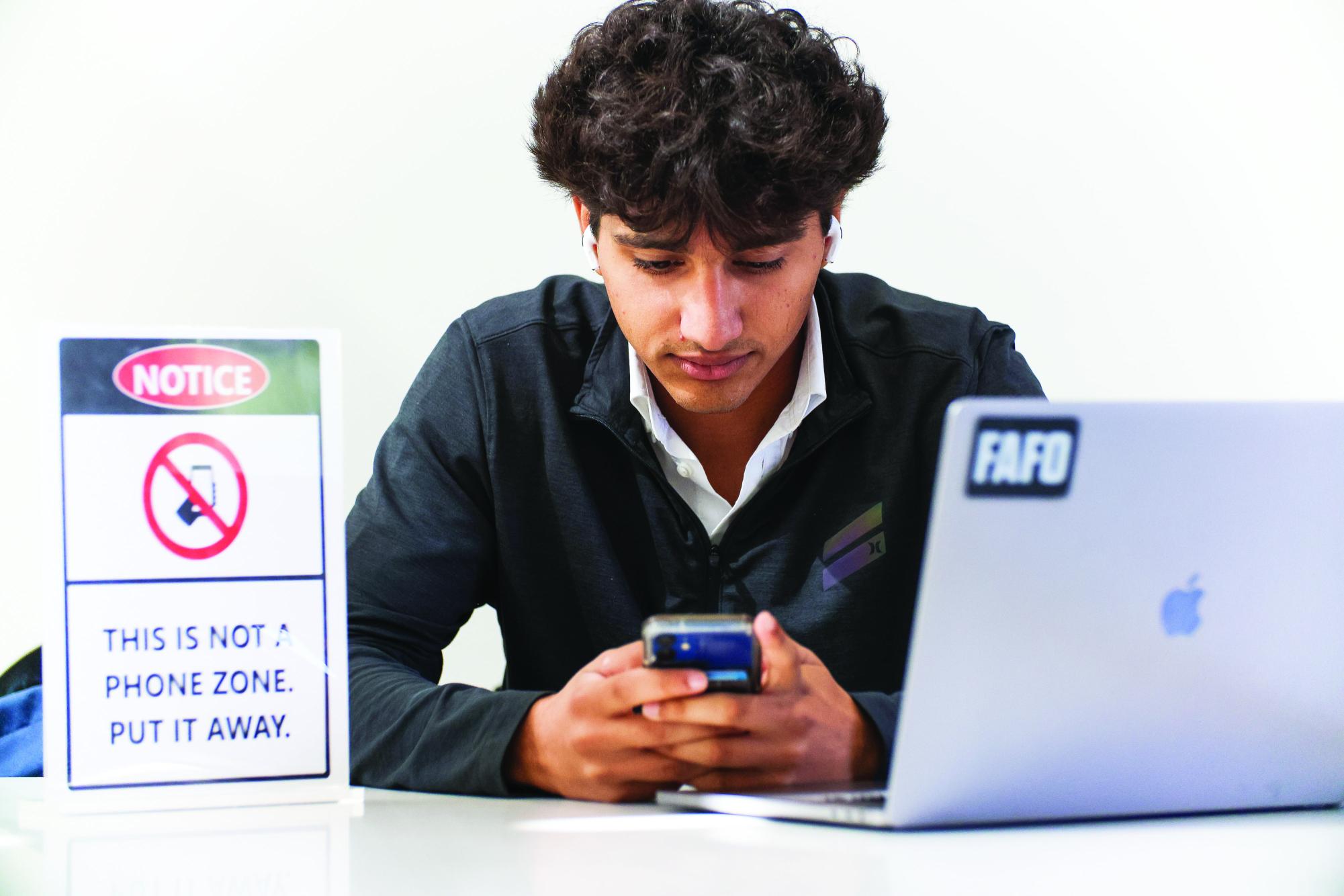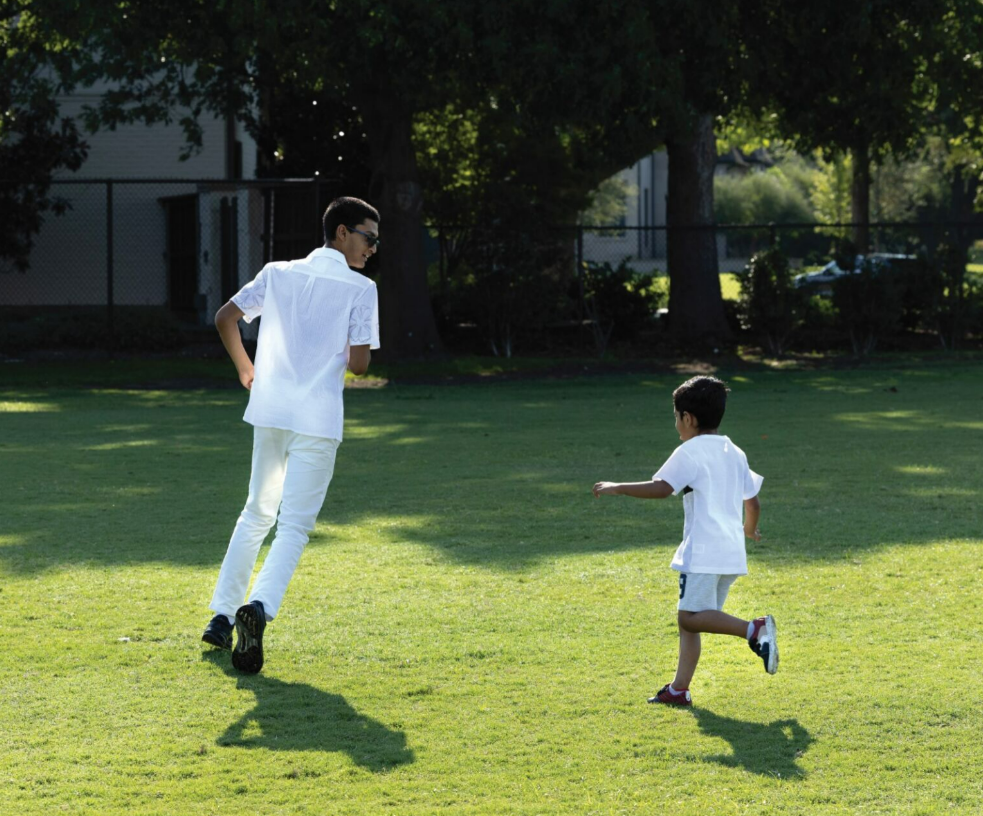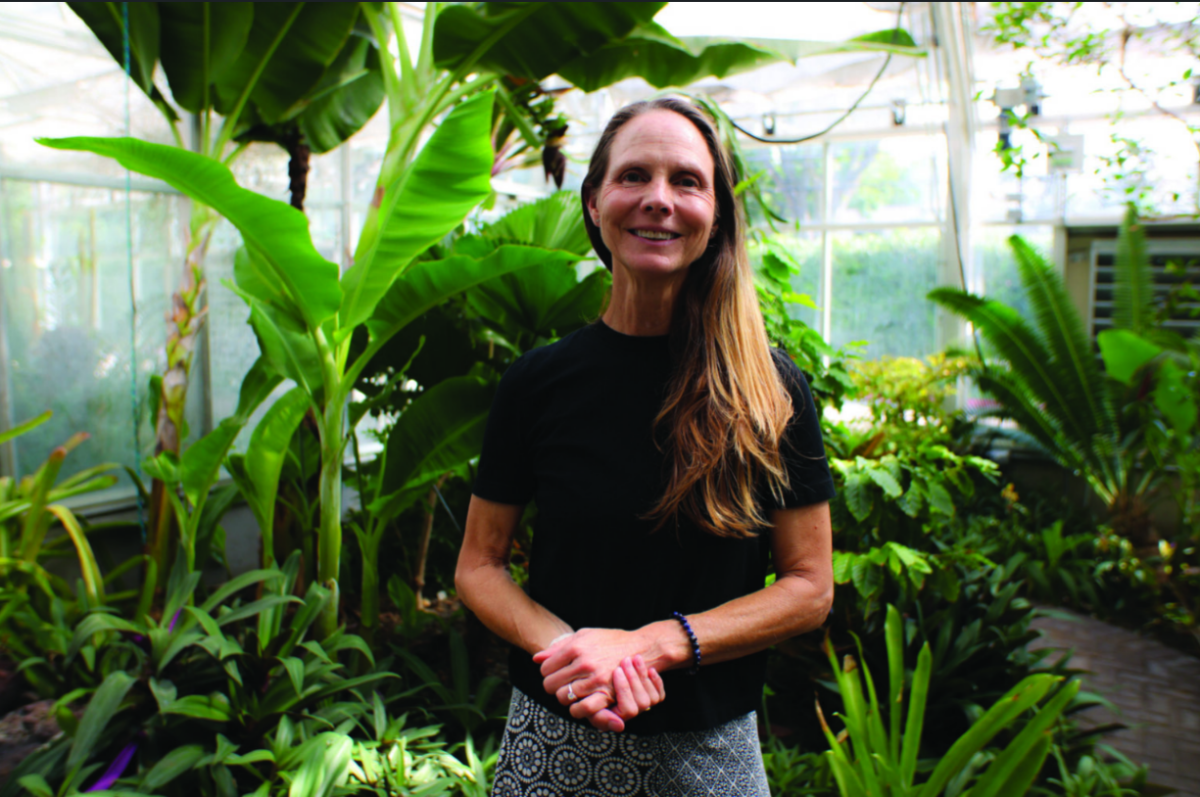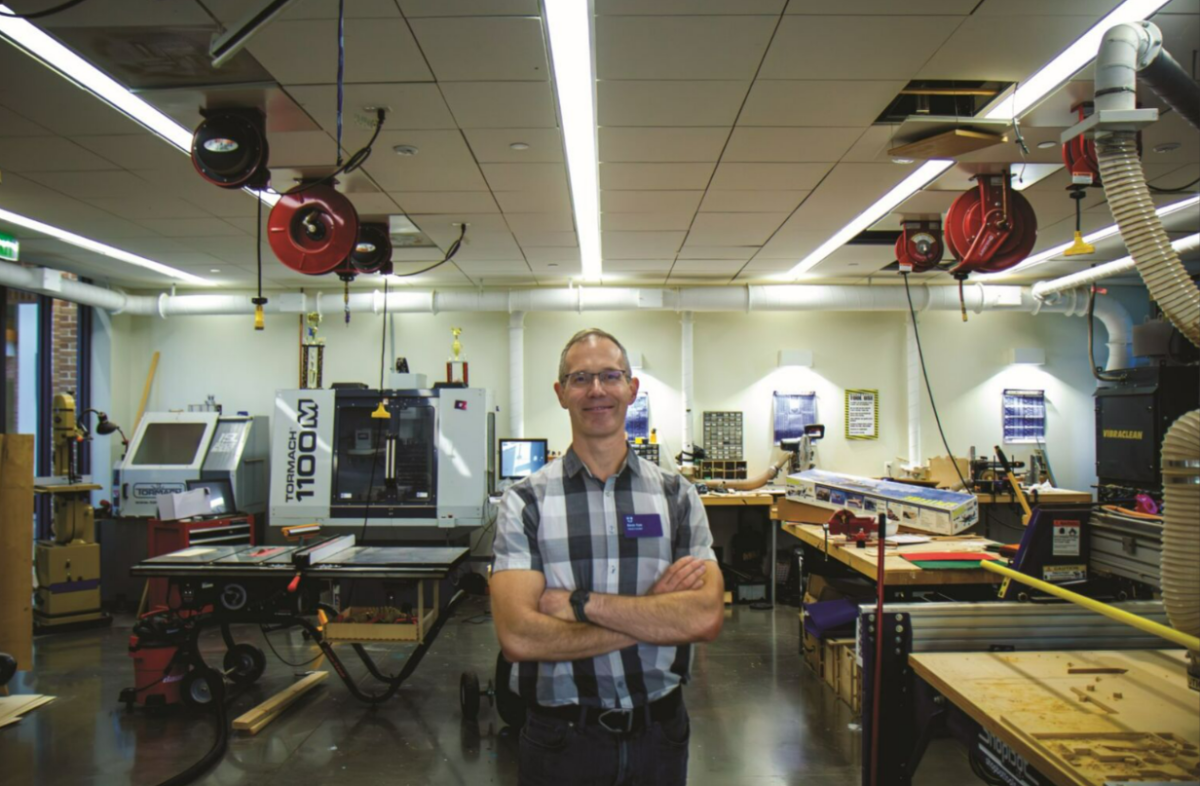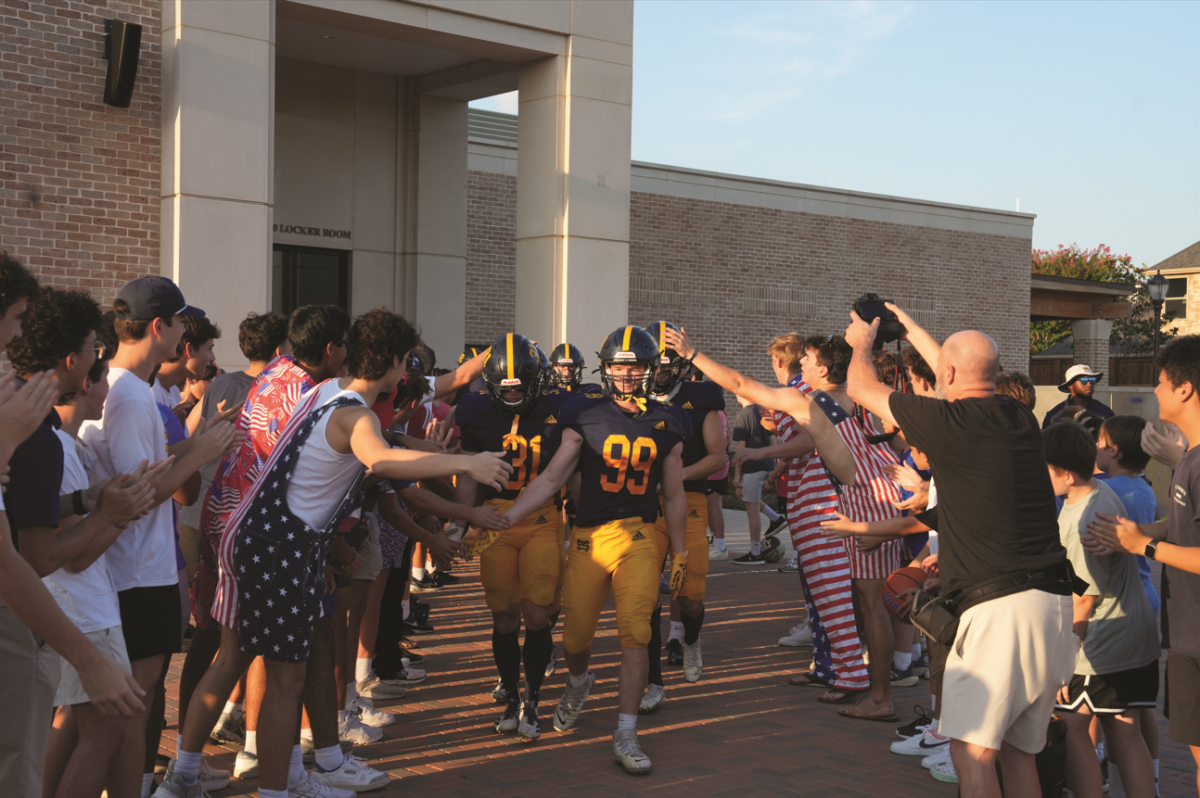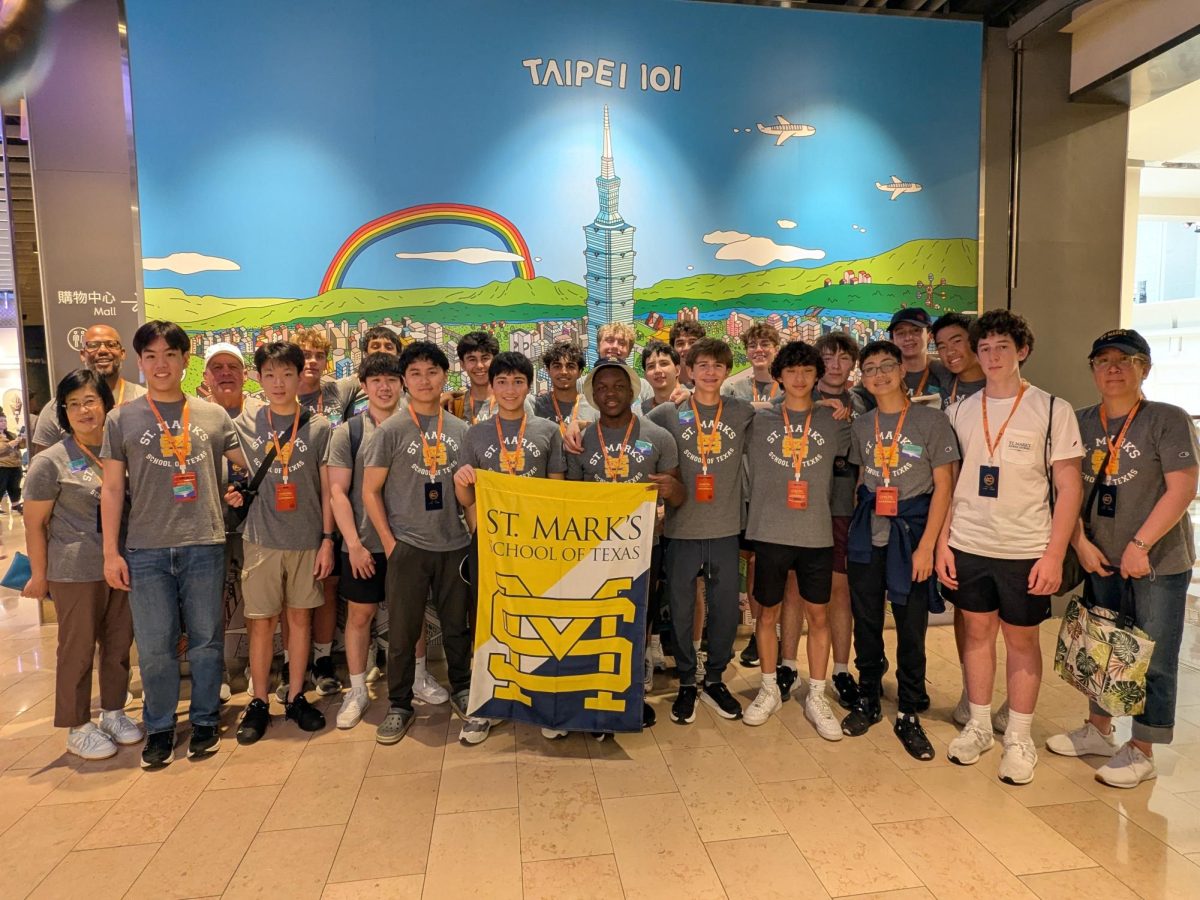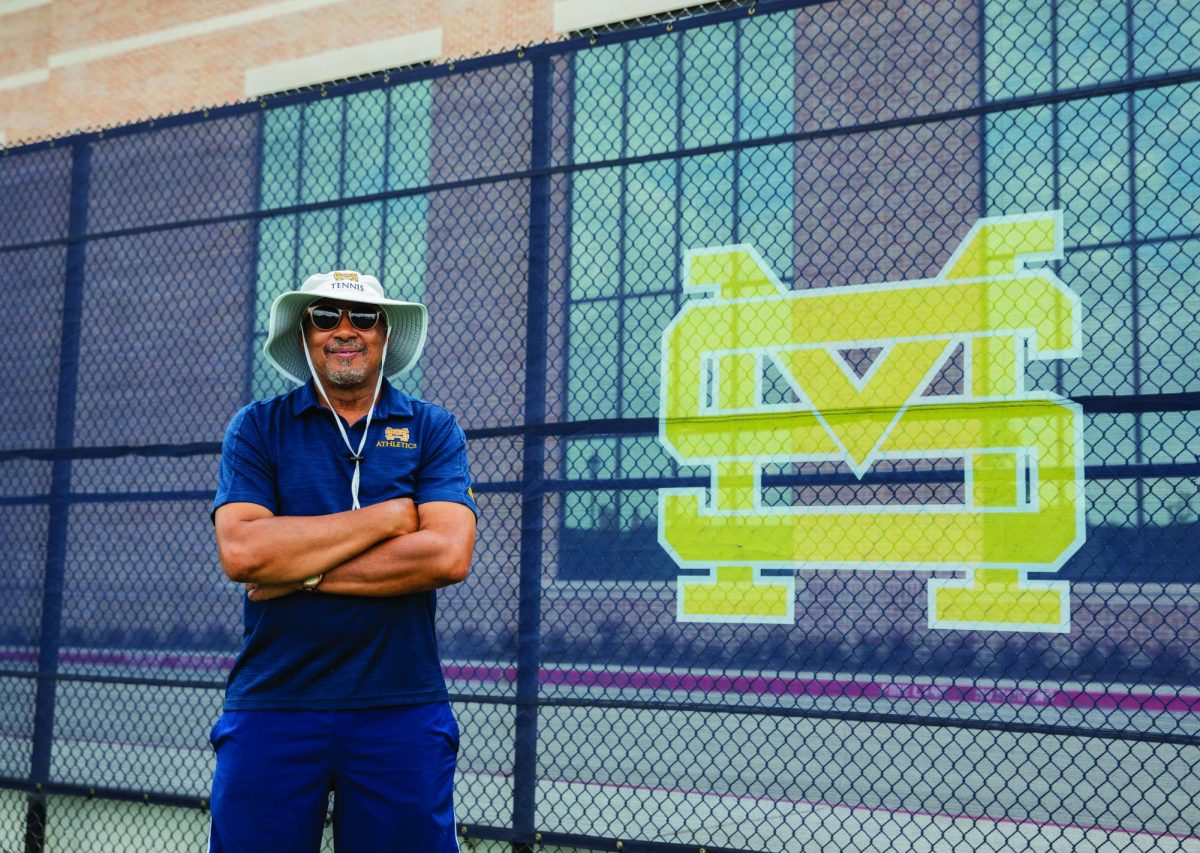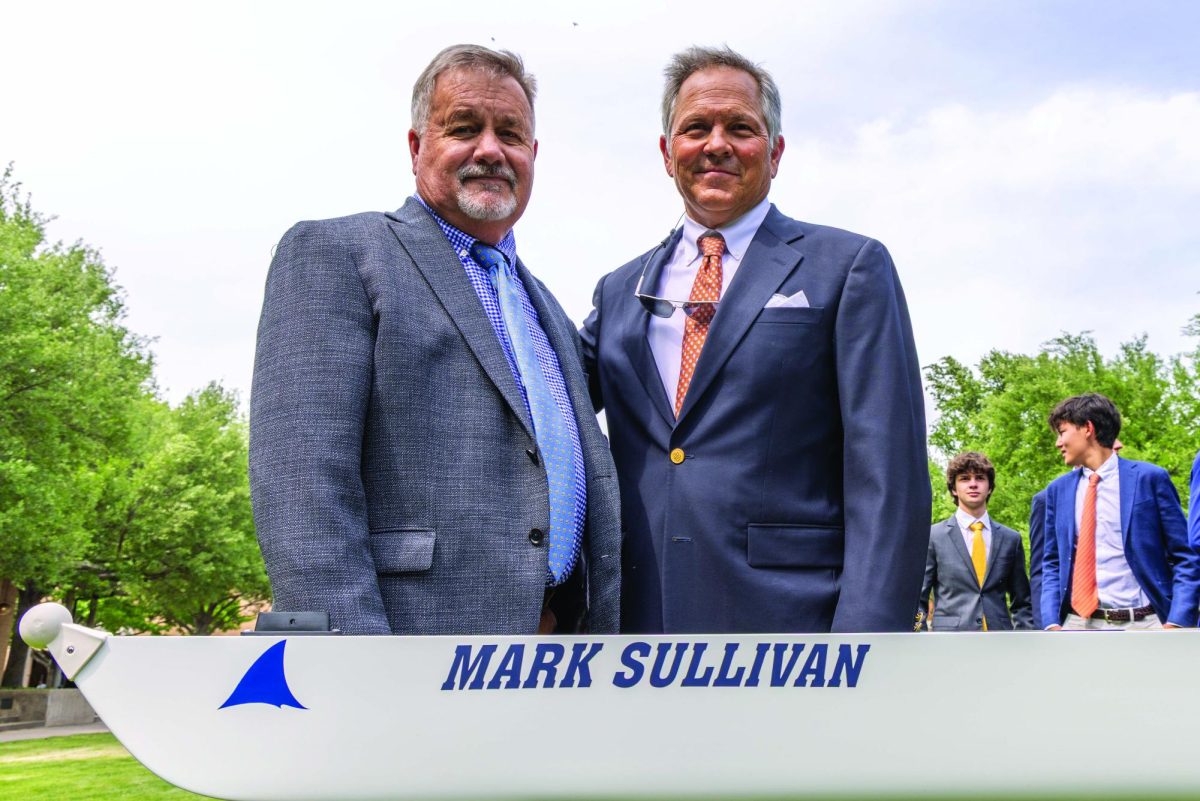Midway through a game of Brawl Stars.
Spike just supered on the hot zone.
The score was 94% to 96%.
Tick-Tick-Tick.
It was now 97% to 96%.
Then he felt a firm hand on his shoulder.
As the screen went black, he began to regret his decision.
As technology is increasingly integrated into almost every aspect of student’s lives, establishing clear acceptable use policies is essential. Lion Tracks is aimed at helping students navigate their responsibilities in an honorable manner. While the handbook covers a wide range of guidelines, the device policies have become more prevalent over recent years.
“What’s great about Lion Tracks is that it puts forth an institutional platform and set of guidelines and expectations for the day to day operation of school and the student experience as well, so that there are no surprises,” Associate Headmaster John Ashton said. “Boys should definitely be familiar with it, because that’s what we’re going to use to respond to or guide decisions around expectations for all of us.”
Ashton hopes to ensure that students are aware of the school’s guidelines. However, instilling this knowledge doesn’t just fall on the school; Attorney and St. Mark’s parent Celeste Bosco believes that parents also play a role in reinforcing the expectations of Lion Tracks.
“I think it’s the parent’s job to raise the boys to know that there’s a handbook,” Bosco said. “You’re supposed to read it. You’re supposed to know what the policies are, and don’t be surprised if you’re expected to abide by them.”
Upper School administrators understand the importance of holding students to the highest standards, which means enforcing the acceptable use policies rules stated in Lion Tracks.
“We always ask you guys to do the little things that matter,” Ashton said. “Whether it’s faculty, administrators or adults on this campus, it’s our responsibility then to intervene when a boy makes a decision that is out of bounds with Lion Tracks or the expectation.”
While Ashton recognizes the importance of proper regulations, he hopes that students can build responsible technological habits on their own without relying on restrictive policies.
“Our position has always been about responsible use versus prohibitive use, which is more important,” Ashton said.
Ashton recognizes that a student’s maturity level affects their responsibilities. He believes Upper Schoolers have larger workloads and tend to use their devices more responsibly, therefore gaining increased device privileges across campus.
“Devices give us access to lots of information and uses,” Ashton said. “But, responsible use definitely depends on age. As boys get older, they have to be more responsible for managing responsible use, but with younger boys it’s just more difficult.”
In situations where a teacher or administrator believes that a student has broken the expectations or acceptable use policies, they are permitted to search through a student’s device.
“We want to try and build better habits and tell the truth in all situations, as our honor code says,” Assistant Head of Upper School Jason Leneau said. “Telling the truth in all situations is not hard, but many people might not want to tell the entire truth. And that’s a habit that’s formed. I would continue to encourage people to try and do the right things all the time.”
Leneau believes cultivating honesty is essential to uphold the school’s core values, raising the question of why students feel the need to lie about their device usage in the first place.
“Why jump to the fabrication of something when you could just own the fact that you were playing Brawl Stars or flipping through social media or playing some other type of game?” Leneau said. “We know that’s not the right response.”
However, some students and parents believe that searching through one’s phone crosses a boundary between monitoring proper behaviors and infringing on one’s privacy and personal life.
“Frankly, on a personal basis, I actually don’t think that’s reasonable,” Bosco said. “I don’t know why they would need to. If they are reading (my son’s) phone, they’re reading my communications with him. And that’s my business…If there’s a basis for it, if there’s an accusation that (my son) is doing something inappropriate, then by all means, but they should contact me first.”
Issues can also arise if administrators enforce the rule on a subjective basis which can lead to uneven treatment of some students.
“Like a lot of times, not St Mark’s in particular, but a lot of times there are policies specifically in employment situations that don’t get enforced,” Bosco said. “But it’s there, but so that the employer can use it if they want to, as a basis. If they’re enforcing it in a biased way, that’s not okay.”
Bosco understands that while handbooks outline the official rules, they aren’t always the absolute authority. The interpretation of rules can differ, and sometimes in ways that students may not necessarily agree with.
“The handbook has terms in it,” Bosco said. “They were appropriate when I read it, and I had no issues with it. Then if they changed the terms and put in things that may or may not be appropriate, then an issue comes up. Just because it’s in the Lion Tracks, doesn’t mean that they have every right to do it. What if they put a term in there that’s obviously completely inappropriate?”
Beyond device policies, Leneau hopes students can make the most of their time at school, emphasizing the importance of in-person-communication and warning that excessive use of technology can hamper meaningful experiences with others.
“I look at school for students, that’s their job,” Leneau said. “Their job is to show up, participate in class, have fun, engage, but not to be on your device. Because that’s time lost to interact with someone, learn something new, either about someone or something that you may uncover as a passion or an opportunity to really dive into and throw your whole whole self into.”

